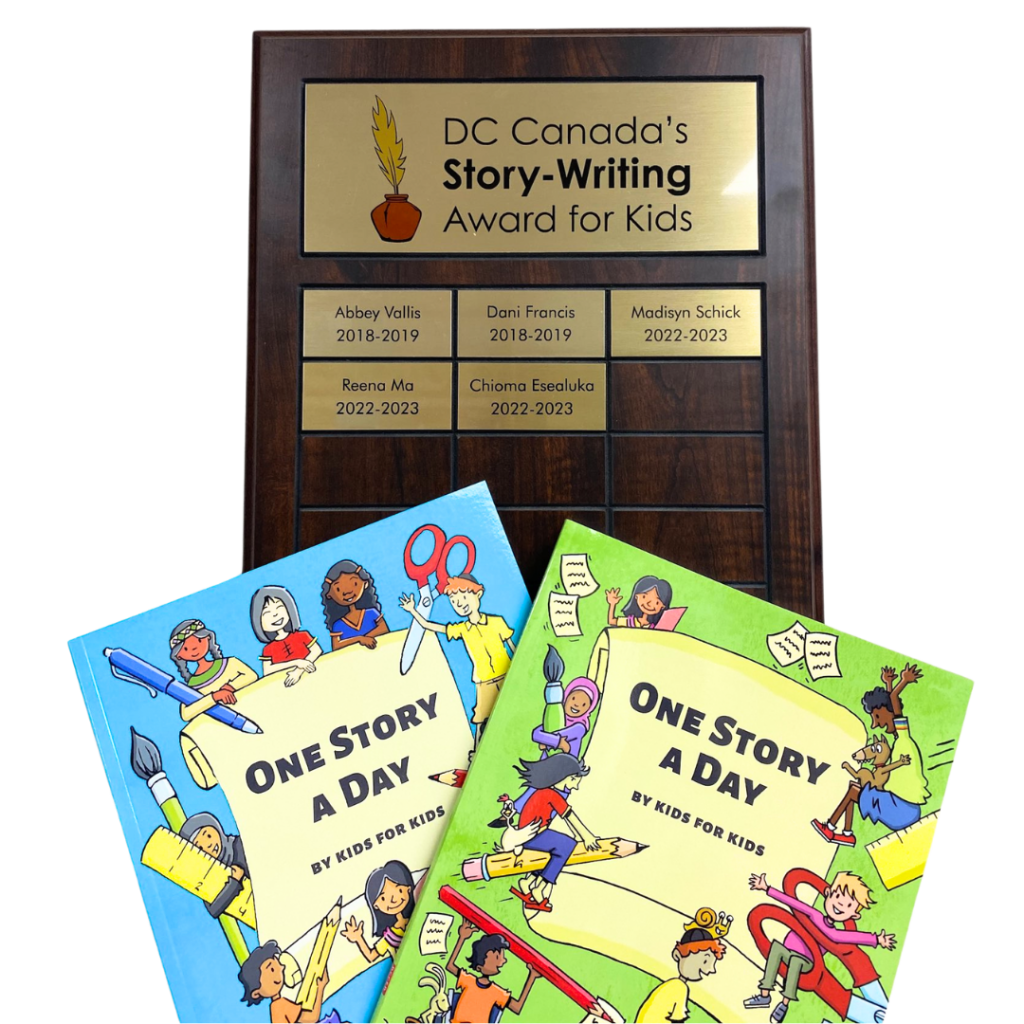By Nicholas Saumur
Do you remember the One Story a Day contest? That country-wide writing competition where children across Canada get a chance to show off their writing skills to the world? Last year, we received over 350 submissions that told all kinds of unique stories. This year, we are looking to find even more spectacular tales than before. If this sounds interesting or you need a refresher, here is everything you need to know.
For this event, children from grades 1-6 are allowed to participate; this includes children who are homeschooled as well. They are free to write up to two stories about whatever topic they want; these can be set in a fantastic world or take place right in their backyard. Whatever the story is about, it’s up to the junior author to decide.
It might surprise you, but children make for good storytellers. Stories are used to both entertain and teach lessons to children so it’s no wonder they would want to spin their own tales, especially when reading makes up a big part of their lives. And to their credit, they can be unexpectedly good at writing.
Children aren’t concerned with whether a story is good or makes sense and they don’t spend hours worrying about whether someone will like it. Adults can invest a lot of time and effort trying to make something that’s “perfect.” Meanwhile, most kids won’t even bother with a second draft. It might not be “good” in the traditional sense, but they aren’t scared to give the world something fantastic and original.
The point is that sometimes kids come up with stories that can surprise us. What we want to do with this contest is show off as many one-of-a-kind stories as possible. Stories that might never be seen by others. If we’ve convinced you, then read on for the contest details.
The length of the stories will depend on the writer’s grade level. The specific word counts for each grade are as follows: 50 to 100 words for 1st and 2nd grade, 100 to 200 for 3rd and 4th grade, and 200 to 300 for 5th and 6th grade.
Each story will be judged for its creativity and the author’s use of correct spelling and grammar. And what do the young writers get if they win? The top 30 stories will be featured in an illustrated storybook that will be published and shared with the world, while first, second, and third place in each age group will also receive a cash prize.
If you’d like to participate or know someone who would, you can find more details and submit stories at this link. We can’t wait to see all the amazing stories we will receive!


